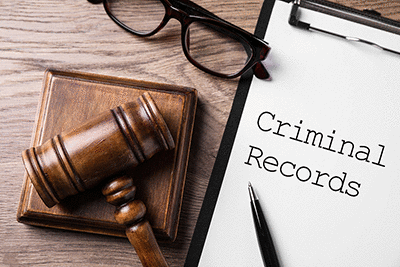Those applying for a new job in the UK may be asked by their employer to under a criminal record check as part of the employment process. Although this is for employment in the UK, some businesses and companies also use this for UK applicants that will work outside the country. All those living in the UK with any kind of criminal record will be registered with the local law enforcement authorities in the country. The objective of these checks is to ensure only those candidates that are suitable for the post are employed.
Background Disclosure
All Criminal record checks are carried out by the DBS. This was earlier called the CRB (Criminal Records Bureau). In N Ireland it is called Access NI while in Scotland it is referred to as Disclosure Scotland. While these checks may not be legally binding for most sectors with only some requiring them mandatorily, there are an increasing number of companies and businesses that are opting for them. The process has become easier and much faster than before.
The database of criminal records for England, Wales and Scotland is maintained by the PNC. However, Northern Ireland its database is maintained by NI. When an application is received for a background check, it arrives at the PNC and after completing the process they issue the DBS certificate. While Basic checks cost £18, the standard and Enhanced are £38 and the process can take 24-48 hours for basic checks and up to 4 weeks for the other two.
Basic DBS Check
The most common check is the Basic Check which can be applied by anyone that is 16 and above. It needs some personal details like the date of birth, Id proof, national insurance number and address proof for the last 5 years. The application process is simple and convenient and can be done online through an account and a TP that is received by the applicant. It is the swiftest of the three checks as it only reveals basic info such as unspent convictions.
Rehabilitation of Offenders (ROA)
The ROA Act of 1974 ensures that past offenders do not face discrimination if they had past convictions. The law states that upon rehabilitation an individual should not be discriminated against when applying for a job. If any vacancy does not entail a necessary background check the employer cannot ask an applicant for a background check of any kind. An individual can ask for a background basic check at any time. If any employer asks for the background check of an applicant, the latter has a right to refuse the same.
Standard Checks
This is a more detailed background check and may take 14 working days or more. It includes reprimands with both spent and unspent convictions, warnings and cautions. If any employer asks for a standard check, it must meet the requirements of the ROA i.e. justify the criteria needed to get a check done. These kinds of checks are more commonly asked for jobs in the financial sector to avoid employing any individual that has previously been convicted of fraud. A standard check can only be asked for by a responsible organisation or an employer. For employers to qualify to ask for the check they must meet the requirement of ordering 100 checks or more annually. If not, they will need to ask a responsible organisation to get it on their behalf.
Enhanced DBS/CRB Checks
This is the most comprehensive of the criminal record checks and the costliest at £38. Employers request a potential employee’s Enhanced CRB Check for any job that needs someone very trustworthy. Also, those professions where an employee will contact children or vulnerable adults require an enhanced check. Those working in schools or hospitals will need to go in for an enhanced check. While this background check is comprehensive it will not include a barred list check unless specifically requested for. The list is for both children and adults and features the names of individuals prohibited from working with either of them.

